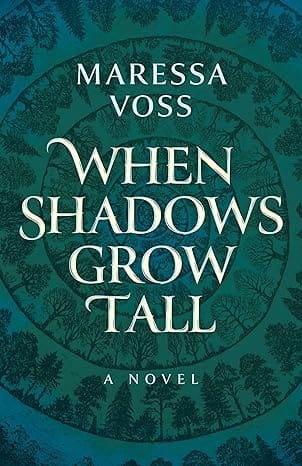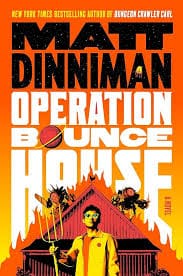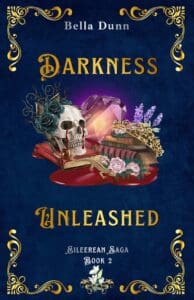
Come for the cosy, stay for the being burned alive
Synopsis
In the Grasp, a realm on the threshold of enlightenment, the dactyli guard the fading embers of their ancient brotherhood, dedicated to the pursuit of absolute truth. Lovelace and Gunnar are rangers, two of the orders’ last who find themselves on the precipice of a changing world. When the order faces a fatal threat from within, Lovelace and Gunnar embark on a dangerous ranging, whereon they discover that more than the welfare of the order is at stake: a rogue dactyli named Alev amasses an army of those he calls the Burned Ones, mercenaries wielding elemental forces. Lovelace and Gunnar are forced to grapple with the unimaginable implications.
Meanwhile, the Grasp languishes under the oppressive rule of Osbert, who exploits the recent advent of the printing press to smoor the fires of budding enlightenment. A young woman named Kylene undertakes a journey to find her missing father, a prominent printer wanted for sedition. Her path leads her to the kapnobatai, a mysterious group of outcasts with whom Kylene takes up refuge and the mantle of her father’s fight for freedom.
In the mountains of Droch Fhortan, Lovelace and Gunnar encounter a feral young woman, Cora. Her mere existence uproots an age-old belief and puts to ground a new truth: magic can be awakened, magic can be taught. As their paths intertwine, a shared purpose emerges – to expose Osbert’s tyranny, thwart Alev’s dangerous plot, and rekindle the flame of enlightenment.
Review
Well, this came out of nowhere like a shovel to the face, albeit the shovel is made of delicious cake. Maressa Voss’ epic fantasy debut from Roundfire Books is a wickedly effective combination of old-school fantasy with modern day themes in a world that is part cosy Tolkien-Shire fantasy and part dark magic, power and back-to-nature themes of Le Guin’s Wizard of Earthsea, with a strong dash of Hunger Games-style defeat-the-dystopia thrown in. It sounds like it shouldn’t work, but Voss has a secret weapon: her utterly wonderful writing which sucks you in to her brilliantly realised fantasy world.
The land of this novel, The Grasp, is a standard fantasy land of magic and late medieval cities but with the twist that it’s on the verge of the enlightenment. In the big cities, the newly invented printing press is pumping out propaganda for the new tyrannical ruler Osbert, who has replaced the old kings and is hunting down all those who oppose his supposed new freedoms. This forms the basis for one of the two POVs, Kylene, whose father must flee when his rebellion is discovered, prompting Kylene to go on a dangerous journey to seek him and his rebels out.
But this is also a land of magic. In a secret fortress in the south, sorcerers called the Dactyli wield elemental powers and seek truth from nature. Unfortunately one of their kind, a lethal fire-wielder called Alev, has absconded and formed his own army, and so the second POV of the book is that of one of the Dactyli sorcerer-rangers, Lovelace, who with his partner must find out what Alev and his secret fire army are up to in the mountains.
It’s the twinning of these two storylines – the “viva la revolución” with the “there’s a new magic in town, kid” that makes this book so fun. The other secret to this tale is the fascinating magic system. With the Dactyli, Voss has combined some guilty pleasure cliché magic with a totally new system. On the one hand we have elemental magic: earth, wind, water, and air powers. This results in some very fun battles of TAKE THAT! TREE IN THE FACE and OKAY HAVE A WALL OF FIRE IN RETURN that are as fun as you’d expect.
But before you unfurl the “cliché” banner in my face, Voss balances out this much worn path with an utterly unique system which you could glibly call “Truth from Trees” (and I am nothing if not glib) but more accurately can be described as the idea that all nature carries memories of what happens around it, and if you can read these memories then you can, in theory, seek the objective truth of the world, and in the case of the Dactyli, store it in stone tablets in a massive library of magic-stored knowledge. It’s a fantastic idea that examines whether there is such a thing of truth, and our relationship with nature.
As you can probably tell by now, this is a book of strong nature themes, and it is also has cosy fantasy vibes. In particular there’s a group of nomads hiding in the mountains who lead the ultimate Shire-Hobbit-but-more-hipster life: bathing in warm pools; growing massive fields of bees and plants to go in their breakfast (the plants not the bees); and swinging themselves to sleep in the woods on hammocks. You could almost be lulled into thinking that this is a cosy fantasy at times, but the fast-paced and frequently violent deaths will quickly disabuse you of that notion. It’s a deft balance Voss pulls off, this mix of cosy and dark fantasy, but she does it like a seasoned pro.
It’s on the themes, however, that Voss has really struck gold here. This is a book about what happens when secret, privileged knowledge and the hoarding of power comes up against the relentless march of progress and the supposed democratisation of knowledge and power at the expense of violence and tyranny. The peaceful Dactyli seek objective truth, and hoard these truths along with the secrets to their magic. But Alev and his terrifying fire powers, as maniacal as he seems, seeks to offer these powers to the wider population. Even the tyrannical movement under Osbert claims to represent progress, denouncing the Dactyli as the elite, essentially. This lays the ground for a classic fantasy clash of “the stuck-in-their-ways-heroes versus the wrong-but-slightly-have-a-point-villains” but it’s also a wicked parable for today, where popular (and mostly right wing) movements across the globe seek to demonise the elites for hoarding their resources and power.
In the enigmatic Kapnobatai (the previously described hammock-swinging nomads) we have a potential solution: magic and wisdom for all but without the violence and tyranny. This clash of potential futures ramps up towards the book, and after one almighty brave and admirably bonkers twist, Voss ends the book right where you want the reader: salivating for the upheaval to come.
Overall this is an urgent tale of the dangers of progress versus the complacency of elites in a cosy-but-dangerous land of magic I never wanted to leave. One of the fantasy debuts of the year.










Leave a Reply